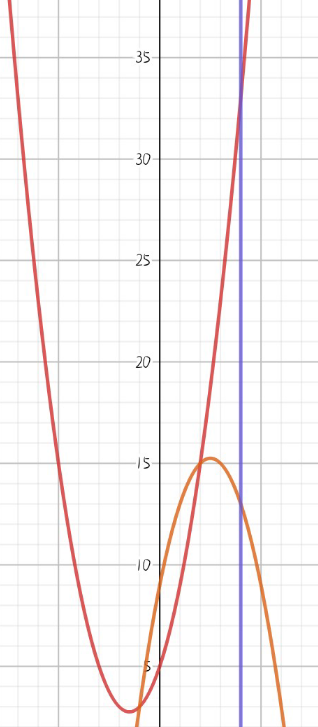Question Number 105167 by mohammad17 last updated on 26/Jul/20

Commented by bemath last updated on 26/Jul/20

Answered by Aziztisffola last updated on 26/Jul/20
![∫_(−∞) ^( ∞) xe^(−x^2 ) dx=[(e^(−x^2 ) /(−2))]_(−∞) ^∞ =0+0=0 ∫_(−2) ^3 (dx/x^3 )=∫_(−2) ^0 (dx/x^3 )+∫_0 ^3 (dx/x^3 )=[((−1)/(2x^2 ))]_(−2) ^0 +[((−1)/(2x^2 ))]_0 ^3 =lim_(x→0) ((−1)/(2x^2 ))+(1/8)−(1/(18))+lim_(x→0) (1/(2x^2 ))](https://www.tinkutara.com/question/Q105213.png)
$$\int_{−\infty} ^{\:\infty} \mathrm{xe}^{−\mathrm{x}^{\mathrm{2}} } \mathrm{dx}=\left[\frac{\mathrm{e}^{−\mathrm{x}^{\mathrm{2}} } }{−\mathrm{2}}\right]_{−\infty} ^{\infty} =\mathrm{0}+\mathrm{0}=\mathrm{0} \\ $$$$\int_{−\mathrm{2}} ^{\mathrm{3}} \frac{\mathrm{dx}}{\mathrm{x}^{\mathrm{3}} }=\int_{−\mathrm{2}} ^{\mathrm{0}} \frac{\mathrm{dx}}{\mathrm{x}^{\mathrm{3}} }+\int_{\mathrm{0}} ^{\mathrm{3}} \frac{\mathrm{dx}}{\mathrm{x}^{\mathrm{3}} }=\left[\frac{−\mathrm{1}}{\mathrm{2x}^{\mathrm{2}} }\right]_{−\mathrm{2}} ^{\mathrm{0}} +\left[\frac{−\mathrm{1}}{\mathrm{2x}^{\mathrm{2}} }\right]_{\mathrm{0}} ^{\mathrm{3}} \\ $$$$=\underset{{x}\rightarrow\mathrm{0}} {\mathrm{lim}}\frac{−\mathrm{1}}{\mathrm{2x}^{\mathrm{2}} }+\frac{\mathrm{1}}{\mathrm{8}}−\frac{\mathrm{1}}{\mathrm{18}}+\underset{{x}\rightarrow\mathrm{0}} {\mathrm{lim}}\frac{\mathrm{1}}{\mathrm{2x}^{\mathrm{2}} } \\ $$
